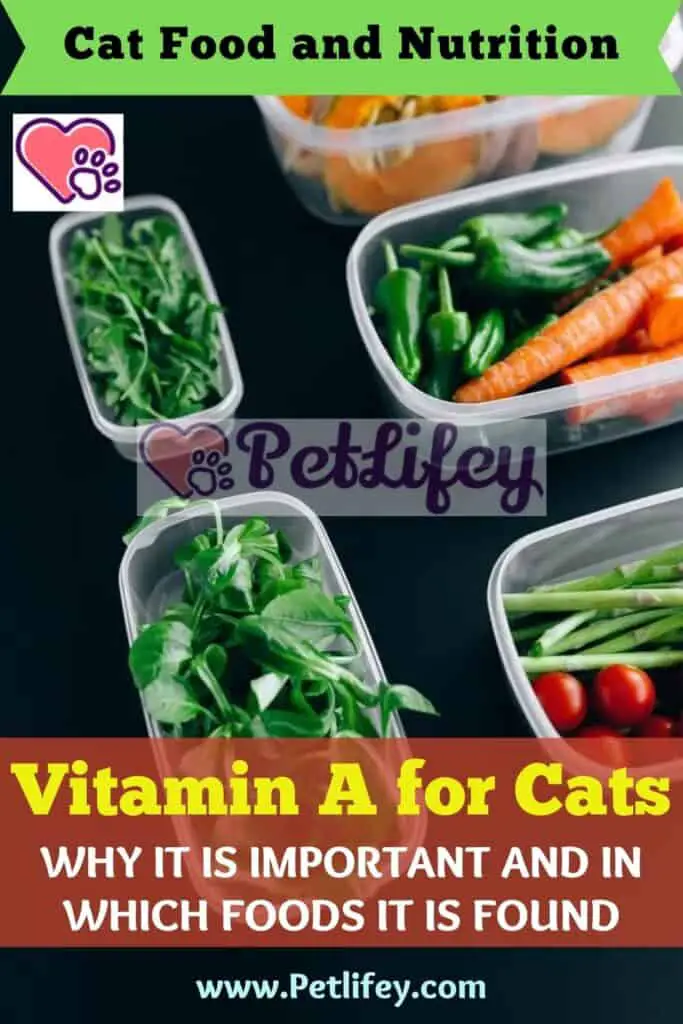
The cat, for its well-being, needs the right amount of vitamin A. Let’s find out why it is important and in which foods it is found.
Having a cat at home means above all paying attention to its diet, which is known to be healthy and balanced.
Making sure your daily nutritional needs are correct is key. Fatty acids, proteins and vitamins, for example, must be assimilated in the right quantities for the well-being of the cat.
And precisely because a vitamin, the same rule applies to Vitamin A as well. But do we know why it is so important for our cat’s body and in which foods we can find it?
Vitamin A: what it is and why it is good for the cat
Perhaps we can define Vitamin A among the most important nutrients essential for the well-being of cats, and more.
Vitamin A, also known as retinol, is one of those fat-soluble vitamins that the body retains in the liver, releasing them only when needed. This is why it is not essential to let your cat take them every day with food.
In nature it is present both in the form of retinol in foods of animal origin (such as liver and milk), and in the form of carotenoids in foods of plant origin (such as tomatoes and apricots).
Vitamin A performs numerous tasks that are able to make the cat’s body function properly. This is why monitoring its intake and absorption is essential for its well -being.
The most important biological functions that this vitamin performs in cats are:
- the growth and proper functioning of the bones;
- tooth development;
- it is essential for cartilage and tissues;
- helps eyesight;
- supports the immune system.
Vitamin A deficiency in cats: pathologies
Vitamin A is essential for the proper functioning of our cat’s body. A deficiency could seriously affect the health of the cat.
But how to understand that our cat has Vitamin A deficiency? Easy. With simple laboratory tests. And if the result is positive, we must immediately consult our veterinarian. It will be he who will indicate the specific treatments to be undertaken.
Acting promptly when we know for sure that our cat has Vitamin A deficiency is essential. As the health risks for kittens are many, and some even serious.
But what are the possible pathologies that our cat can face in detail? Vitamin A deficiency can cause:
- complications on the growth of the cat, with the possibility of bone fragility, and even deformations;
- the deterioration of the epithelial tissue, thus affecting not only the respiratory tract but also the gastrointestinal and urinary tract, causing the cat to pathologies such as pneumonia, enteritis and the formation of stones;
- infertility;
- serious vision problems, especially when the light is dim, and even complete blindness for the cat;
- conjunctivitis;
- deafness;
- convulsions with coordination difficulties.
Unfortunately, there are many pathologies that our cat can undergo due to a lack of Vitamin A. And it is for this reason that it is essential to never neglect its health.
Foods rich in Vitamin A and why not abuse it

As mentioned previously, Vitamin A can be integrated into the cat’s diet thanks to some foods.
First of all, with a higher intake of this precious vitamin, are liver, fish liver oils, milk and eggs. But also all green leafy vegetables and carrots.
All orange fruit, such as apricots and melon, for example, is also excellent. And, with the exception of corn which contains very little of it, all other grains are a good source of vitamin A.
Of course, vitamins are known to stay very little on food, especially if stored for a long time. This is why it is advisable, on the advice of the veterinarian, to add vitamins to the cat’s food, “as a kind” of supplements. Or buy cans directly that already contain them inside.
Therefore, vitamin A is essential for the kitty. Just as it is essential to know how to balance his diet. To avoid finding ourselves solving the opposite problem. What is that? Yes, there is also an opposite problem, called: hypervitaminosis.
The intake of vitamins must be balanced, and not exaggerated. If we were to face this phenomenon, there would be too many annoying ailments for the cat to have to solve. Gingivitis, weight loss, are just some of the symptoms that our cat can undergo in the event of an excess of vitamin A.
So, always balance. Why prevention is better than cure.






